Mutation: The Basics
A mutation is a permanent change in the DNA sequence of a gene. This change can alter the genetic message carried by that gene, which can result in a change in the organism's characteristics.
Types of Mutations
- Point Mutation: This type of mutation involves a change in a single base pair of the DNA. It can result in the substitution of one amino acid for another in a protein, potentially affecting its function.
- Insertion: In an insertion mutation, one or more extra base pairs are inserted into the DNA sequence. This can shift the reading frame and lead to a completely different protein being produced.
- Deletion: A deletion mutation involves the loss of one or more base pairs from the DNA sequence. Like insertion, it can also alter the reading frame and change the protein product.
- Duplication: This mutation results in the repetition of a section of DNA, leading to extra copies of the genes within that segment.
- Frameshift Mutation: This occurs when the addition or deletion of nucleotides changes the reading frame of the genetic message, leading to a completely different protein being produced.
- Chromosomal Mutation: These mutations involve changes in the structure or number of whole chromosomes, which can have significant effects on the organism's development and function.
Causes of Mutations
Mutations can occur spontaneously during DNA replication or can be induced by external factors such as radiation, chemicals, or certain viruses.
Effects of Mutations
The effects of mutations can vary widely depending on the type and location of the mutation. Some mutations may have no effect, while others can lead to genetic disorders, cancer, or changes in the organism's traits.
Study Guide
- Define mutation and explain its significance in genetic variation.
- Describe the different types of mutations and provide examples of each.
- Discuss the causes of mutations and the potential effects on an organism.
- Research a specific genetic disorder caused by a mutation and present your findings to the class.
- Explore the role of mutations in evolution and adaptation.
[Mutation] Related Worksheets and Study Guides:
.◂Science Worksheets and Study Guides Third Grade. Weather
Study Guide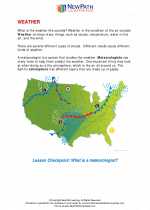 Weather
Weather  Worksheet/Answer key
Worksheet/Answer key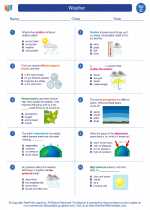 Weather
Weather  Worksheet/Answer key
Worksheet/Answer key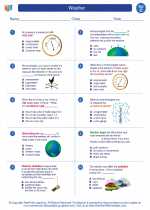 Weather
Weather  Worksheet/Answer key
Worksheet/Answer key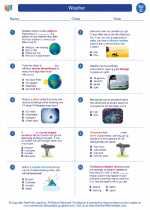 Weather
Weather  Vocabulary/Answer key
Vocabulary/Answer key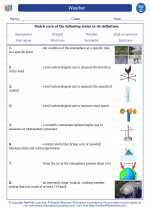 Weather
Weather  Vocabulary/Answer key
Vocabulary/Answer key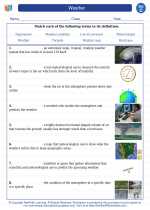 Weather
Weather 

 Worksheet/Answer key
Worksheet/Answer key
 Worksheet/Answer key
Worksheet/Answer key
 Worksheet/Answer key
Worksheet/Answer key
 Vocabulary/Answer key
Vocabulary/Answer key
 Vocabulary/Answer key
Vocabulary/Answer key

The resources above cover the following skills:
EARTH AND SPACE SCIENCE (NGSS)
Earth’s Systems
Students who demonstrate understanding can:
Represent data in tables and graphical displays to describe typical weather conditions expected during a particular season.